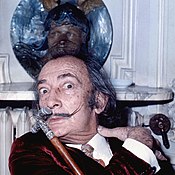Lately, I’ve been reading a lot of work that shows severe problems with sentence structure. Whether in fiction or non-fiction, it’s almost as if the writers do not understand what a sentence is.
For example:
Or the opposite problem, exemplified in this case in fiction:
In the second example, the problem is an incomplete sentence. Something is missing — a verb. This is how a grammatically complete sentence would read:
That’s not a particularly creative solution, but it’s correct.
Another example, with some light surgery to hide the actual source:
Back when I was in grade school, after cleaning the sabre-tooth tigers’ litter boxes, we all learned that a sentence expressed a single complete thought. To do that, it needs two elements: a verb or predicate — action — and a subject, which is usually a noun or a pronoun.
The action word, the verb, is “jumps.” “Fox,” of course, is the subject. The rest of the words describe the subject.
Sometimes, you don’t need the subject to be written out: “Duck!” The subject is “you, implied” — a concept that caused all sorts of confusion when I was in school.
That’s it: noun and verb. Other words just describe the subject or complete the action. End it with a period.
Just “lust slammed” would be a grammatically complete sentence.
The subject can also be a phrase or a clause: a group of words that function together as a noun.
The subject in that example did not end until after “clothes.” (And “after clothes” is one of my favourite places.)
That’s all there is to it. To write clearly, write about something doing something.
Here are some examples of what not to do, and corrections. Again, these are taken from real sources, but doctored slightly so as to keep the guilty hidden until they can redeem their sins.
There are more than one problem with this example. The succession of clauses joined by “and,” while grammatically correct, gets tedious. There’s also way too much detail. You don’t need to describe every single action: your reader can figure out the intervening actions.
Again, there are more than one problem here:
Who cares, though? As long as the underlying meaning comes across, does grammar really matter?
Yes. First of all, using grammar correctly, especially such a basic concept as understanding what a complete sentence is, is a necessary but not sufficient indicator of professionalism. Whether you’re writing fiction, advertising or technical reports, if you don’t come across as professional, no one will take your document seriously. And if the audience doesn’t believe you, why bother writing?
Clarity is even more important. Consider this:
What’s efficient: doctors’ hands, or moving supplies?
When the subject is medical care, I think clarity is pretty darn important.
What do you think? Having trouble with sentences? Ask a question or leave a comment!
 |
| Brain structure: emw/Creative Commons |
For example:
An analysis of survey results conducted by GHI concluded that different groups of consumers face different kinds of challenges, this includes unemployed and underemployed as well as low-income groups.
The chattering of Will’s teeth, as loud as the cold north wind that blew down through mountains.The problem in the first case is a comma splice: joining two separate sentences with a comma, rather than separating them with a period (or maybe a semi-colon).
 |
| Freeimages.co.uk |
The chattering of Will’s teeth was as loud as the cold north wind that blew down through mountains.
That’s not a particularly creative solution, but it’s correct.
Another example, with some light surgery to hide the actual source:
But back to the economy, all three projects expanded simultaneously and required capitalization, no wonder the organization’s bottom line was depleted.
The unit of expression
Think of the sentence as your basic unit of expression. A word may be a unit of meaning, but a single word by itself does not usually express an idea.Back when I was in grade school, after cleaning the sabre-tooth tigers’ litter boxes, we all learned that a sentence expressed a single complete thought. To do that, it needs two elements: a verb or predicate — action — and a subject, which is usually a noun or a pronoun.
Sometimes, you don’t need the subject to be written out: “Duck!” The subject is “you, implied” — a concept that caused all sorts of confusion when I was in school.
That’s it: noun and verb. Other words just describe the subject or complete the action. End it with a period.
A wave of lust slammed into her body.
The subject can also be a phrase or a clause: a group of words that function together as a noun.
Resisting the temptation to crush her body against his and tear off her clothes took all his willpower.
That’s all there is to it. To write clearly, write about something doing something.
Joining complete thoughts
To join two complete thoughts — sentences — you have to have the right kind of link. Usually, it’s not a period, but a word or a group of words. I won’t go into the formal grammatical expression here; if you read good writing, you’ll develop a sense of what “sounds” right.Here are some examples of what not to do, and corrections. Again, these are taken from real sources, but doctored slightly so as to keep the guilty hidden until they can redeem their sins.
Run-on sentence
The run-on sentence happens when one complete idea follows another without any punctuation or joining phrases. |
| Image Wikipedia Commons |
She got up and went into the bathroom and got a wet washrag and came back and laid it across her mother’s forehead.
She wet a rag in the bathroom and laid it across her mother’s forehead.
Not that I minded I can curse with the best of them, as you’ve probably noticed.
Not that I minded; I can curse with the best of them, as you’ve probably noticed.
Comma splice
Another common error is joining two related sentences with a comma instead of a semi-colon.She took his hand again, “how are we going to keep them safe?” She whispered.
She took his hand again. “How are we going to keep them safe?” she whispered.
“If we move quickly we could be off in front of the soldiers, we’ve got fast horses and money.”
“If we move quickly we could get ahead of the soldiers — we’ve got fast horses and money.”
“The horses need to rest tonight, so do we.” Gianni replied.
“The horses need to rest tonight, and so do we,” Gianni replied.
A matter of style?
 |
| Wikipedia Commons |
Yes. First of all, using grammar correctly, especially such a basic concept as understanding what a complete sentence is, is a necessary but not sufficient indicator of professionalism. Whether you’re writing fiction, advertising or technical reports, if you don’t come across as professional, no one will take your document seriously. And if the audience doesn’t believe you, why bother writing?
Clarity is even more important. Consider this:
For hospitals seeking increased profitability in the operating room (OR) it is essential to streamline the movement of materials from suppliers to the hands of doctors efficiently acquiring and moving supplies critical to OR procedures are measurable ways to reduce costs, increase revenue capture, optimize labour and improve process management.
When the subject is medical care, I think clarity is pretty darn important.
What do you think? Having trouble with sentences? Ask a question or leave a comment!

I was taught that a run-on sentence is two sentences joined together without the 'and' or 'but' etc. Eg: I went to the store I bought milk.
ReplyDeleteThis can also be called a 'fused sentence.'
No, that's just wrong. Read the post.
DeleteI'm all in favour of bending the rules of grammar when making a point but those rules seem to have been completely forgotten these days. If you'll excuse the split infinitive.
ReplyDeleteThat's not a split infinitive. A split infinitive would be: "to completely have been forgotten". The verb "to be" can obviously be legitimately declined in the form "to have been".
Delete